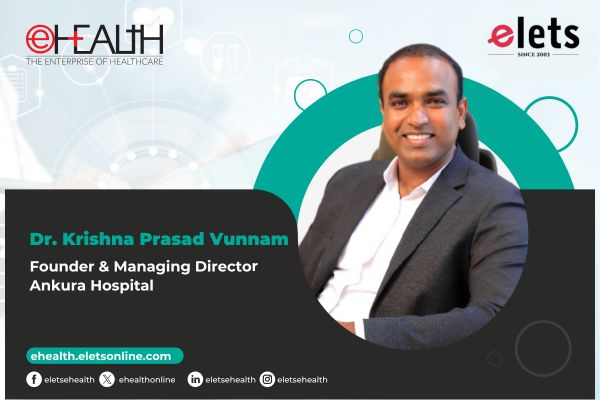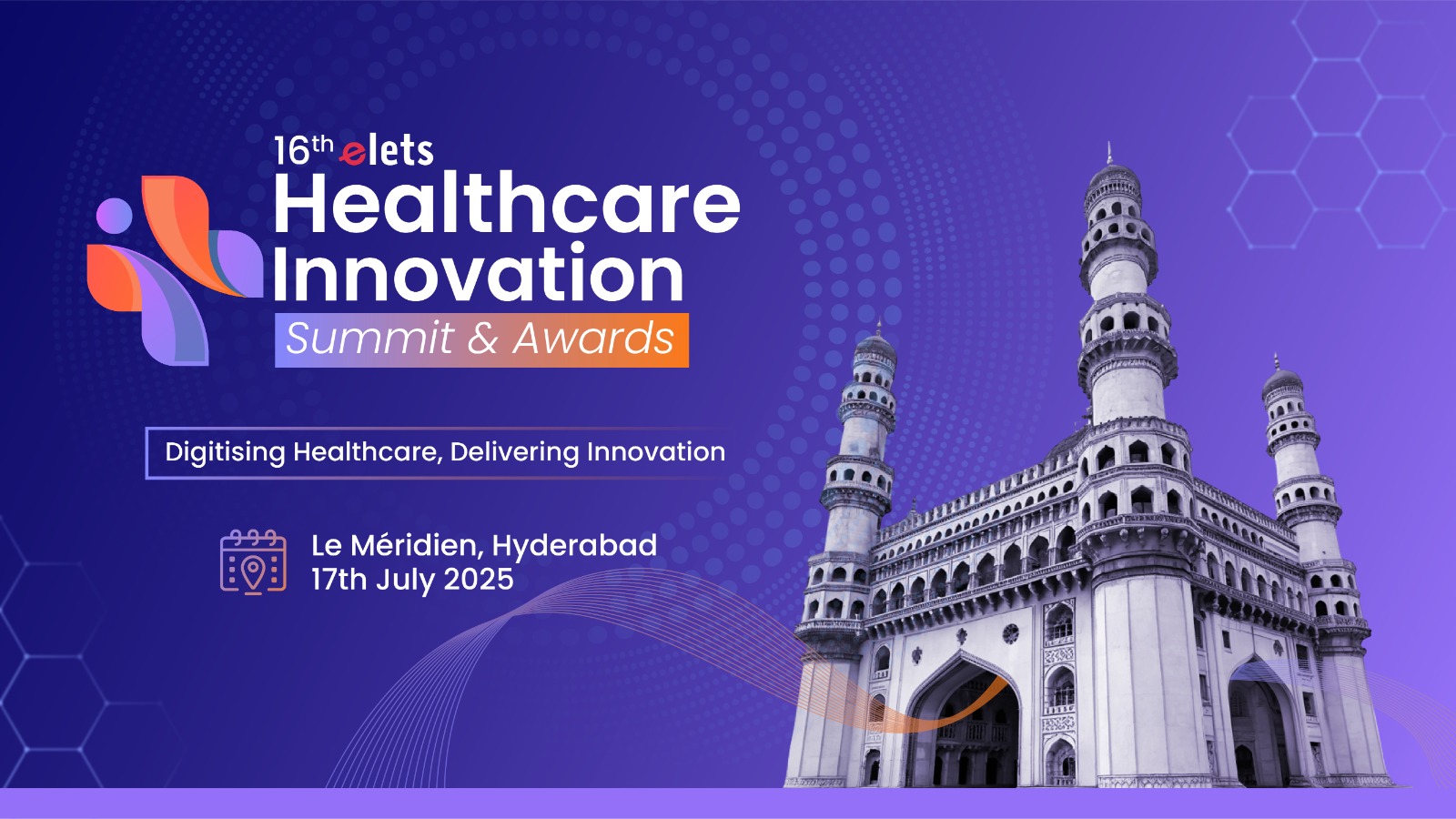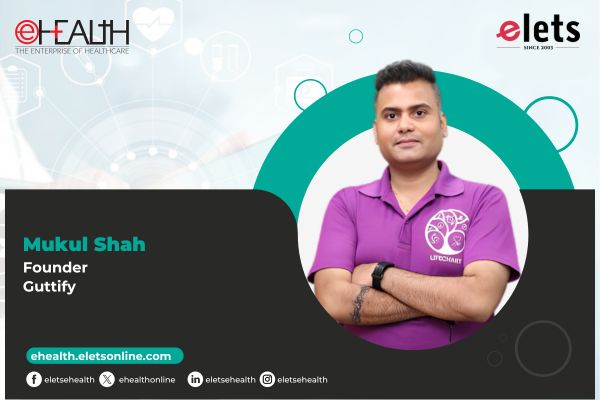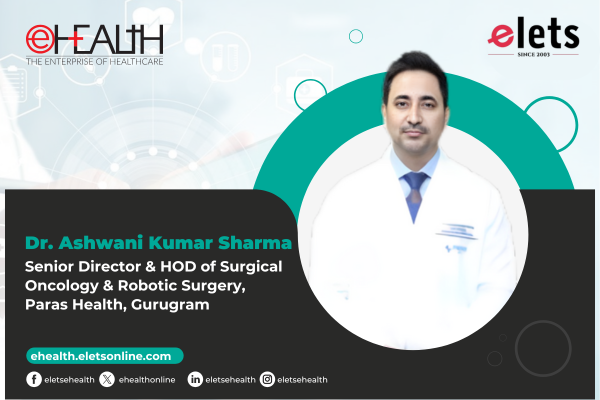
As India embraces the digital healthcare revolution, understanding the impact of smart hospitals on patient care and operations is crucial for shaping a more accessible, efficient, and technology-driven future. In an exclusive conversation with Dr. Krishna Prasad Vunnam, Founder and Managing Director, Ankura Hospital For Women & Children, Dr Asawari Savant, from Elets News Network (ENN), dives deep into emerging innovations for women and child health. Edited excerpts
With the rise of smart hospitals in India, how do you see healthcare evolving in terms of patient care and hospital operations?

It’s wonderful to witness the rise of smart hospitals in India. This transformation is making healthcare more patient-centric, efficient, and data-driven. Advanced digital integration is helping enhance real-time monitoring, precision treatments, and seamless coordination between departments. Inpatient care, minimally invasive surgeries, AI-assisted diagnostics, and personalized treatment plans are improving outcomes.

On the operational front, automation, predictive analytics, and streamlined workflows are optimizing resource utilization and reducing wait times. The future lies in technology-driven, holistic healthcare provided by smart hospitals that ensure accessibility, safety, and enhanced patient experiences.

How are smart hospitals improving maternal and neonatal care, particularly in high-risk pregnancies and premature births?

High-risk pregnancies and neonatal care, especially premature births, require advanced medical support. Technological advancements are transforming these critical areas by enabling early diagnosis, personalized treatment, and real-time monitoring. AI-powered fetal monitoring systems and remote patient monitoring are making it possible to detect complications early, enabling timely medical intervention in high-risk pregnancies. Moreover, advanced predictive analytics allow assessment of risks like preterm labor and gestational hypertension, improving maternal and fetal outcomes.
By leveraging technology like automated incubators, AI-driven ventilation support, and real-time telemetry, hospitals can provide precise, round-the-clock care for premature babies, improving survival rates and long-term health outcomes. Furthermore, employing telemedicine ensures specialists can provide remote guidance, even in critical cases. By leveraging newer technology, smart hospitals can ensure safer pregnancies and better neonatal survival rates. We eagerly look forward to adapting to these changes.
What role do minimally invasive surgical techniques play in enhancing outcomes for gynecological and pediatric procedures?
The word “surgery” inevitably brings to mind large incisions and stitches. However, minimally invasive surgery has revolutionized medical procedures by using small incisions, advanced imaging, and precision instruments, leading to faster recovery, reduced pain, and minimal scarring.
In gynecology, laparoscopic surgeries and innovations like vNOTES enable obstetricians and gynecologists to perform procedures such as hysterectomy, fibroid removal, and ovarian cystectomy with minimal incisions (as small as 5mm) or entirely scar-free through natural openings. This helps in faster recovery and minimal scarring, allowing women to resume normal activities sooner. For pediatric procedures, minimally invasive techniques in surgeries for appendicitis, hernias, and congenital abnormalities reduce complications, shorten hospital stays, and improve long-term outcomes.
Minimally invasive surgeries allow patients to opt for surgical corrections more confidently, thereby setting new standards in women’s and children’s healthcare. Ankura Hospital for Women and Children proudly leads in pediatric and gynecological minimally invasive surgeries.
How do you envision advancements in genomics shaping the future of healthcare for women and children?
Advancements in genomics enable early diagnosis, personalized treatments, and preventive care. Sometimes, the identification of specific genes can even prove curative for complex medical conditions. Genomic insights can help predict risk factors for breast and ovarian cancers, pregnancy-related complications, and reproductive disorders, allowing proactive management. In children, genetic screening can detect inherited disorders, metabolic conditions, and developmental diseases at birth, enabling early interventions that improve long-term health outcomes.
Prediction of disease risk in future babies can also aid in genetic counseling and early interventions, enabling better preventive care and informed decision-making for families.
Telemedicine has been a boon for remote and underserved communities. How has it helped transform access to specialized healthcare and patient outcomes?
Telemedicine has revolutionized access to specialized healthcare by bridging geographical gaps and bringing expert care to remote and underserved communities. It enables real-time consultations, second opinions, and follow-ups without the need for travel, making healthcare more affordable and accessible. For maternal and child health, telemedicine ensures timely intervention in high-risk pregnancies and neonatal care. It also enables access to pediatric super-specialties in remote areas, ensuring specialized care reaches all corners of our country.
Also Read : Minimally Invasive Spine Surgery: A Game Changer for Faster Recovery
What steps has your hospital taken to enhance patient experience through digital integration?
We leverage digital integration to enhance the patient experience, ensuring seamless, personalized care for women and children at every stage of their healthcare journey. Central to this effort is our unified digital ecosystem, which includes advanced systems such as our Hospital Information Management System (HIMS), Customer Relationship Management (CRM), and facility management software. These tools allow us to efficiently manage patient records, track appointments, and ensure smooth communication between patients, families, and healthcare providers. For maternity patients, HIMS tracks pregnancy milestones, while for pediatric patients, it ensures that immunizations and checkups are scheduled on time.
We also integrate communication tools like chatbots and WhatsApp, enabling patients to easily access information, schedule appointments, and communicate with our healthcare team in real time. This instant communication ensures that families feel supported throughout their healthcare experience. Additionally, our doctor app allows healthcare providers to quickly access patient data, make informed decisions, and coordinate care seamlessly. For women, maternity patients, and children, these digital tools ensure that their care is personalized, efficient, and responsive to their specific needs. Expectant mothers benefit from timely reminders for checkups, while parents can easily schedule pediatric appointments and track their child’s health milestones.
By integrating these systems, we have reduced wait times, improved coordination, and enhanced patient satisfaction. Digital integration has transformed the way we deliver care, making every interaction more efficient, supportive, and connected. Our commitment to this technology ensures that our patients—especially mothers and children—feel valued, informed, and well cared for every step of the way.
What are the key challenges in transitioning to a smart hospital model? How have you tackled these challenges?
Transitioning to a smart hospital model comes with key challenges such as high initial costs, staff adaptation to new technologies, data security concerns, and system integration complexities. We have tackled these by investing in phased digital adoption, ensuring comprehensive staff training, and implementing robust cybersecurity measures to protect patient data.
Seamless integration of electronic health records has helped streamline operations while enhancing patient care. Collaboration with tech partners and continuous feedback from healthcare teams has been crucial in ensuring a smooth and effective transition. We are in the process of making continuous adaptations to the rapidly changing technology and look forward to many more smart changes in our hospital in times to come.
Be a part of Elets Collaborative Initiatives. Join Us for Upcoming Events and explore business opportunities. Like us on Facebook , connect with us on LinkedIn and follow us on Twitter , Instagram.
"Exciting news! Elets technomedia is now on WhatsApp Channels Subscribe today by clicking the link and stay updated with the latest insights!" Click here!











